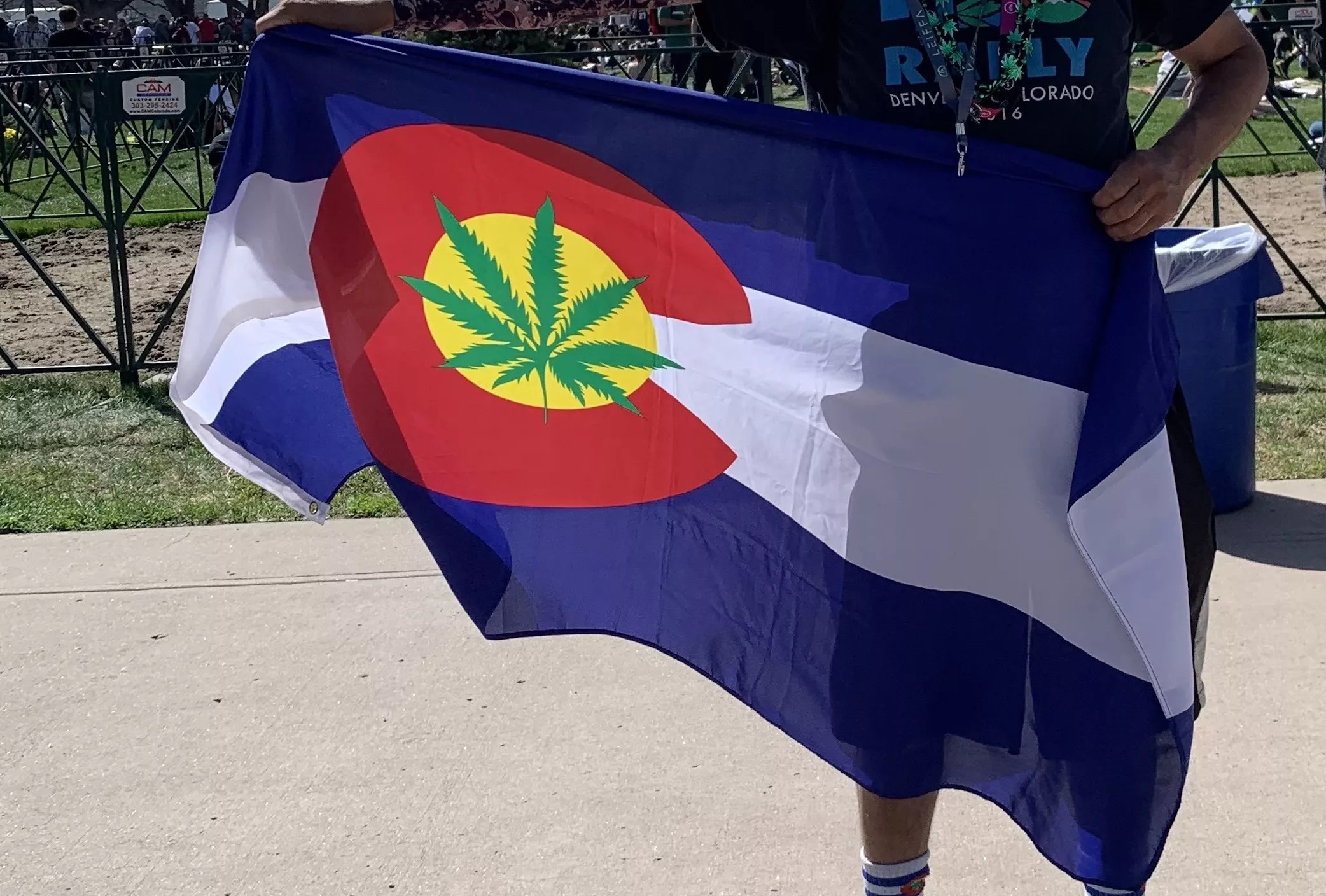
Thomas Mitchell

Audio By Carbonatix
The ten-year anniversary of Colorado’s vote to legalize recreational cannabis was followed by another election two days later – and this one wasn’t short on pot, either.
On November 8, five more states had ballot measures regarding the legalization of recreational marijuana. Maryland and Missouri both approved theirs, but pro-pot proposals failed in Arkansas, North Dakota and South Dakota.
Sal Pace – a longtime Pueblo resident, former state lawmaker and current board chair of the Marijuana Policy Project – was refreshing a lot of screens on Election Day. While he was keeping tabs on a proposal to allow the sale of recreational pot in Colorado Springs, his neighbor to the north (it went down), he was also keeping tabs on votes across the United States that could affect the larger mission of national legalization. We checked in with Pace for his take on the midterm election results, as well as what’s next for marijuana in Colorado and around the country.
Westword: Did the election results for the Colorado Springs recreational sales measure surprise you?
Sal Pace: I saw poll numbers showing that it was tightening. The opponents put up almost $800,000 in advertising over the last three weeks, and they were able to really move the needle.
It’s interesting, because 310, the tax measure, did pass. Obviously, 300 didn’t, and some of the key issues were about where the tax revenue was going. Those arguments were in 301, though. If the city clerk in Colorado Springs hadn’t been putting their hand on it to weigh the balance toward one side, some of those revenue issues could have been addressed. If 300 said all the marijuana tax revenue would go toward veterans, public safety and mental health on the question, I’m of the opinion it would’ve made a difference.
On the other hand, the proponent side had a ton of money, too, and invested a ton. One thing to realize is that it’s not a presidential election year, and you’re going to have lower turnout everywhere. Ten and fifteen years ago, the cannabis reform movement was so cognizant of the larger electorate in presidential years, and the demographic is much older and whiter in these off-year elections. They’re generally less reflective of the population.
Without Colorado Springs opening up, has Colorado reached max capacity on recreational cannabis?
Colorado Springs was the last major frontier in Colorado, with all of the other major metropolitan areas at least having something nearby. Yes, it’s a loss for growth in the cannabis industry, and it’s really a loss for consumers in Colorado Springs – but what’s really tragic is the 100-plus medical dispensaries in Colorado Springs that have been scraping by. These business owners have put their life savings in these businesses, and with the passage of House Bill 1317 [a law that limits medical marijuana concentrate sales] last year, I don’t know how these businesses will stay afloat. I expect a lot of people to lose their life savings in Colorado Springs, and that shops will close. They can’t make money anymore. It’s sad, and it’s tragic.
Was there anything the Colorado Springs campaign could’ve done differently?
I believe the timing was significant for the result. Look at South Dakota: Two years ago, a more robust legalization measure passed. The courts threw it out – it was a BS decision – so we ran a less robust measure this year in South Dakota and lost. That’s a prime example of presidential versus off-year election results.
The Colorado Springs campaign was well funded and raised around $1.5 million. But they had to spend around $1 million just to get on the ballot, which puts you at a disadvantage. The bad guys were able to outspend proponents heavily over the last three weeks. We still don’t know where the money came from, but eventually that will come out, and we need to hold those people accountable.

Sal Pace has roots in both cannabis and politics in Southern Colorado.
Courtesy of Sal Pace
Is cannabis reform in Congress done for this year?
There is hope that the SAFE Banking Act could happen in Congress during a lame-duck session. It had been held up by [New Jersey Senator] Cory Booker, who was pushing for more social equity provisions in the bill. He’s said he’s willing to move on this, though, and he’ll be in Las Vegas for MJBizCon. We think there’s potential for this to move in Congress during the lame duck.
Even if SAFE Banking happens, though, most of the reform is still happening at the state level across the country. That has been the case since Amendment 64 ran in Colorado ten years ago. Even though we had mixed results on the latest election day, we’re still seeing more movement, and it’s a lot more effective at the local and state levels than at the federal level.
What states are most likely to consider or vote on legalization next?
We’re focused on every state in the country, but like to really focus on states that allow ballot initiatives. At the top of the list right now we have Hawaii, where governor-elect Josh Green is a strong proponent.
We think Louisiana will be the first Deep Southern red state to pass legalization legislatively. They’ve made some really positive inroads with reform over the last few sessions, and we’ve got MPP staff there. South Carolina has been on the tipping point for medical marijuana for a number of years, and we think Idaho could go medical through a ballot initiative, too. Pennsylvania is a legislative state, but we’re hopeful about it there. Ohio will likely have a legalization ballot initiative soon, as well.
There’s still a lot of work to be done. Around 600,000 Americans are still arrested each year for cannabis possession, which is a real crime.